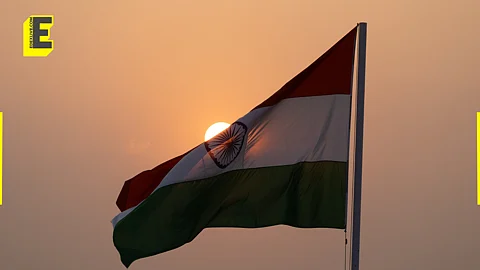

What unites these reformers is their belief that education must be inclusive, liberating, and rooted in local realities.
Their experiments, writings, and institutions provided alternatives to colonial frameworks and elite models.
They reimagined classrooms not just as spaces of instruction, but of transformation.
As India now moves ahead on the road to transformation and development — by incorporating the demands of AI, digital learning, and global benchmarks — it's crucial to remember the soil from which its educational tree has grown.
What do you think of the word ‘freedom’ in 2025?
Smarak Ranjan Patel, MA, Delhi School of Economics
"The truly free man is the one who lives as he wishes, neither compelled nor hindered, whose desires align with virtue and reason." — Marcus Aurelius, Meditations
This very idea resonates within me whenever the idea of freedom is echoed.
Freedom for me thus becomes self-mastery over my desires, emotions, and judgements, unaffected by circumstances. Rigorous self-control and ethical living are required to attain true independence. Thus, in essence, "Discipline becomes Freedom."
Uttank Jha, MBA, IIM Indore
For me, a person's ability to live life with dignity is largely dependent on being able to exercise their freedom that is protected through our fundamental rights. As a species that progresses through constant innovation, freedom gives room for the true expression of human brilliance to shine through. While necessity is the mother of invention, freedom to explore, seek, and create is a crucial ingredient. It is easy to take for granted, but it pains us the most in its absence.
Dr Om Sharma, Junior Resident (Internal Medicine), AIIMS Rishikesh
As a medical doctor in 2025, freedom means more than independence — it means dignity, equity, and safety.
It is the freedom to provide care without fear, to access healthcare without barriers, and to practice science without interference.
After the lessons of a global pandemic, freedom now includes mental well-being, digital autonomy, and protection from misinformation. For patients, it's the right to be heard and healed; for doctors, it's the space to serve with integrity. In medicine, freedom is the heartbeat of humanity.
Sukanya Sonowal, BTech student, IIT Guwahati
Freedom in 2025 means using technology and education to bridge divides, counter extremism through dialogue, and create solutions that unite. It’s carrying forward our freedom fighters’ dreams by transforming learning into action — building a Viksit Bharat where scientific progress serves humanity, young voices shape policy, and every citizen can pursue their aspirations with dignity.
True freedom empowers us to reject hatred, choose unity, and work collectively for sustainable peace and inclusive progress.
Shreya Nikose, PhD scholar, Humanities and Social Sciences, IIT Delhi
Freedom, in 2025, means the right to question, resist, and reimagine without fear. It is the power to speak and write truths rooted in lived experiences of inequality. It means breaking free from inherited silences and imposed identities. Freedom is not just personal, it is collective, built on solidarity and care. It is the space to dream, dissent, and rest, while working toward a more just and equal world — from the margins to the centre.
